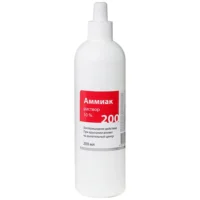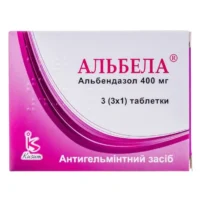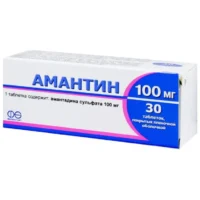Description
Emend (Aprepitant) Capsules 80 mg
Composition:
Each capsule contains 80 mg of aprepitant as the active ingredient. Other ingredients include lactose monohydrate, microcrystalline cellulose, croscarmellose sodium, and magnesium stearate.
Mechanism of Action:
Aprepitant is a substance P/neurokinin 1 receptor antagonist. It works by blocking the action of substance P in the brain, which is involved in triggering nausea and vomiting.
Pharmacological Properties:
Aprepitant exhibits high selectivity and affinity for the substance P/neurokinin 1 receptor. It has a long duration of action and is well-absorbed after oral administration.
Indications for Use:
- Emend capsules are indicated for the prevention of acute and delayed nausea and vomiting associated with initial and repeat courses of highly emetogenic cancer chemotherapy.
Contraindications:
- Do not use Emend if you are allergic to aprepitant or any of the other ingredients.
- Contraindicated in patients taking pimozide, terfenadine, astemizole, and cisapride due to potential drug interactions.
Side Effects:
Common side effects of Emend may include fatigue, constipation, hiccups, and dizziness. Rare but serious side effects may include severe allergic reactions. Consult your healthcare provider if you experience any adverse effects.
Usage Instructions:
The recommended dosage is two 80 mg capsules taken orally 1 to 3 hours before chemotherapy. Swallow the capsules whole with a full glass of water. Do not crush, chew, or open the capsules. Follow the dosing schedule provided by your healthcare provider.
Benefits Compared to Analogues:
Emend has demonstrated superior efficacy in preventing both acute and delayed chemotherapy-induced nausea and vomiting compared to other antiemetic agents. Its mechanism of action offers a targeted approach to reducing these symptoms effectively.
Suitable Patient Groups:
Emend is suitable for use in adult patients undergoing highly emetogenic cancer chemotherapy. It is not recommended for use in children, and special caution should be exercised when prescribing to elderly patients due to potential age-related physiological changes.
Storage Conditions and Shelf Life:
Store Emend capsules at room temperature, away from moisture and heat. Keep the medication out of the reach of children. Check the expiration date on the packaging and do not use the product if expired.
Packaging Description:
Emend capsules are typically packaged in blister packs containing 2 capsules each. The packaging should include information on the active ingredients, dosage instructions, and contraindications.
Clinical Evidence and Proven Effectiveness:
Studies have shown that aprepitant, the active ingredient in Emend, effectively reduces both acute and delayed chemotherapy-induced nausea and vomiting. A randomized, double-blind, placebo-controlled trial published in the Journal of Clinical Oncology demonstrated the superior efficacy of aprepitant in preventing nausea and vomiting in cancer patients undergoing chemotherapy.





